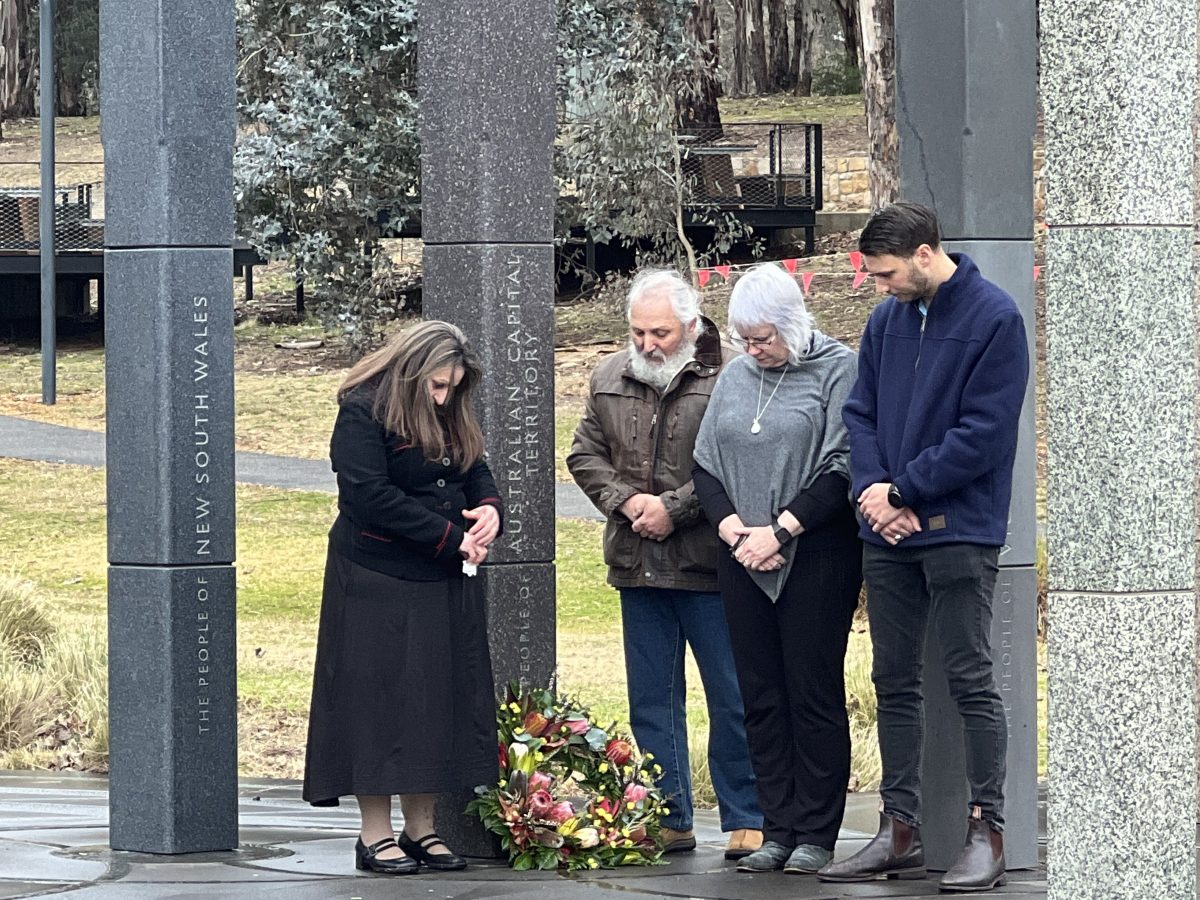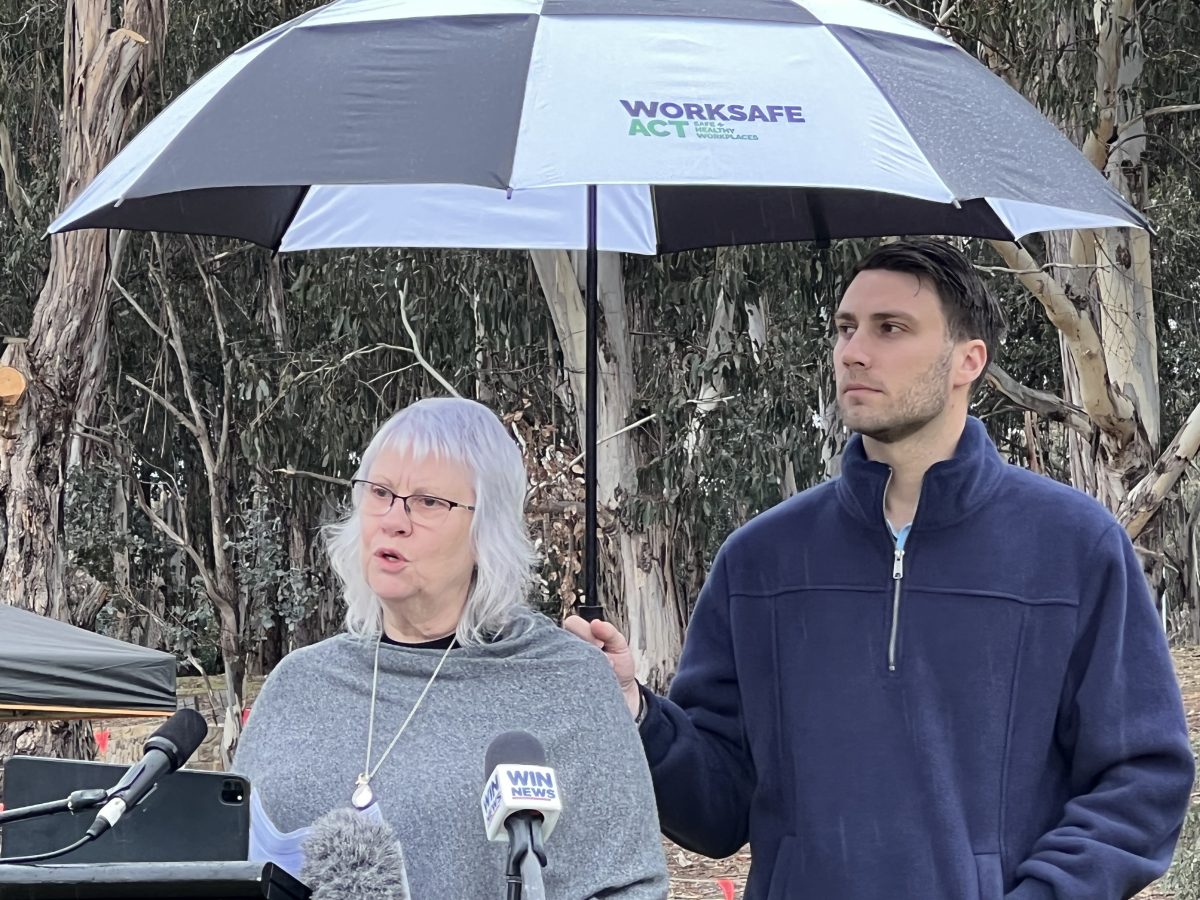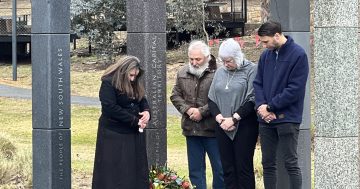
WorkSafe ACT Commissioner Jacqueline Agius lays a wreath with his Barney, Kay and Jack Catanzariti in memory of Ben, who was killed in 2012. Photo: Lottie Twyford.
Ten years ago today, Kay Catanzariti’s 21-year-old son Ben was killed when the bolts on a concrete boom failed and it collapsed on him at a construction site in Kingston.
Since then, she has been fighting for justice, accountability and even a simple apology for what happened.
She finally received the latter today from WorkSafe ACT Commissioner Jacqueline Agius – something Mrs Catanzariti was grateful for after “years of lip service” and no delivery.
The “broken” mother has been pursuing legal and legislative avenues for change for the past 10 years. She’s since lost faith in the system she once believed in after no one has ever been held to account for his death.
Charges laid in the ACT’s industrial court targeting maintenance company Schwing Australia and one of its engineers were ultimately abandoned at the 11th hour in 2016 after the ACT Director of Public Prosecutions (DPP) decided they were unlikely to succeed.
The issue was that conflicting expert reports attributed the bolt failure to different causes.
“I’ve been given a life sentence,” Mrs Catanzariti said.
“The laws failed me and they failed Australian workers. No family should have to go through what we went through.”
Following the dropping of those charges, the construction union had raised concerns about the ability of WorkSafe ACT and the DPP to prosecute similar cases when they are pitted against wealthy multinationals.

Ben’s mum Kay Catanzariti, supported by her son Jack, has been campaigning for change and justice for 10 years, but she says the “fight” has broken her. Photo: Lottie Twyford.
Nevertheless, Mrs Catanzariti has taken her fight for accountability for her son’s death to the Federal and Territory governments – hoping for stricter work health and safety laws – a fight she will soon take to the new Federal Government.
Locally, there are signs change could also be on the way.
Today, a swathe of recommendations to the government and WorkSafe ACT was released following a major review of work safety prosecutions in the ACT undertaken by independent reviewer Marie Boland.
Those recommendations go to a need to establish a new, hybrid model of prosecutions for the ACT, which would mean WorkSafe ACT would establish an in-house prosecution team comprising one senior prosecutor, two junior prosecutors, a legal graduate and a paralegal.
It further recommends that all industrial manslaughter offences be prosecuted by the DPP and that the WHS Commissioner could seek prosecution advice from external counsel without the need for approval from the Chief Solicitor of the ACT.
A need for additional data collection, effectiveness performance measures and transparency in prosecution decisions was also highlighted by multiple recommendations.
That report in its entirety will be given to the Work Health and Safety Council next month for endorsement before it is handed to the ACT Government for consideration.
While Mrs Catanzariti hoped they could be implemented as swiftly as this year, Ms Agius warned it would take time before the cogs of change would begin to turn.
The WHS Commissioner also wouldn’t comment on whether any of the recommendations made in the review would have changed the legal outcome for Mr Catanzariti’s grieving family.
















